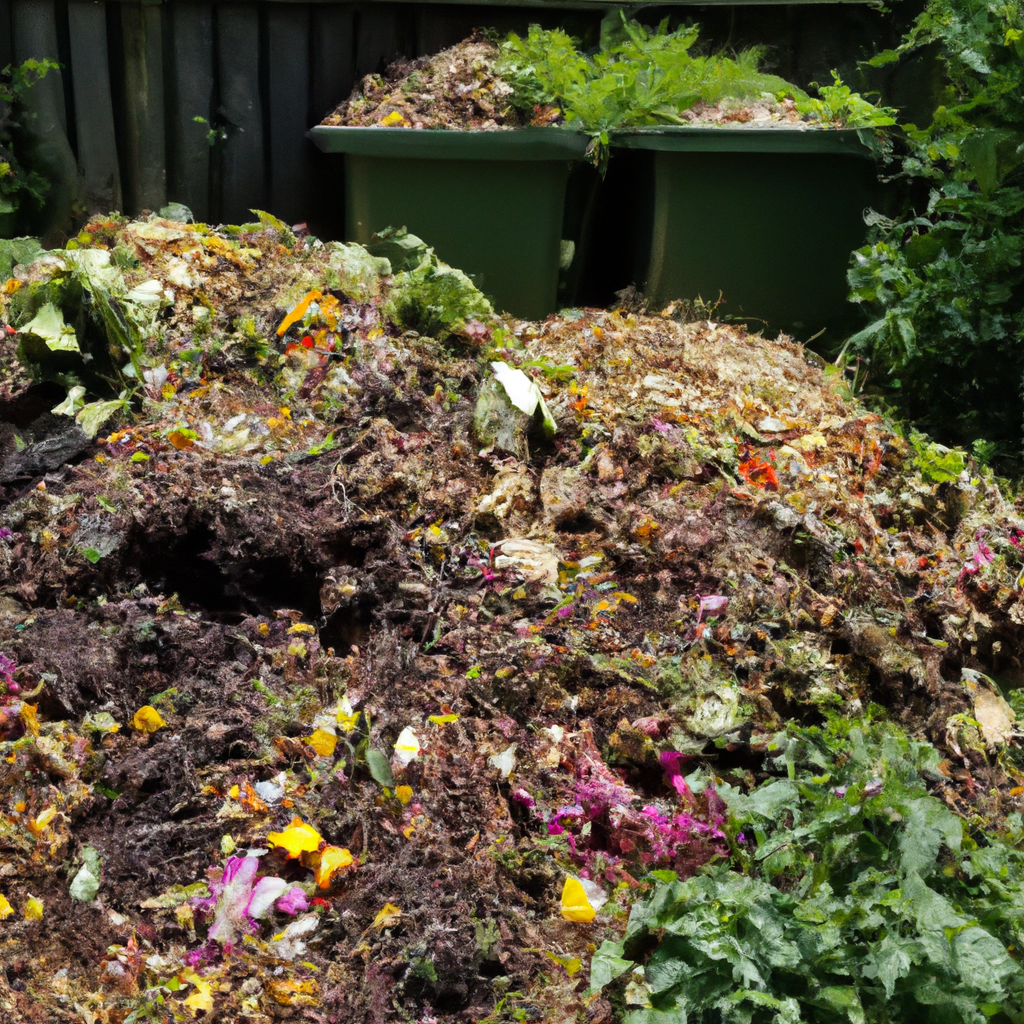Welcome to our comprehensive guide on how to supercharge your soil and unleash the power of composting for nutrient-rich gardens. We understand the importance of having healthy, fertile soil that promotes robust plant growth and yields. In this article, we will delve into the world of composting and provide you with valuable insights, tips, and techniques to help you create nutrient-rich compost that will transform your garden. Let’s get started!

What is Composting?
Composting is a natural process that involves the decomposition of organic materials such as kitchen scraps, yard waste, and other biodegradable materials. Through the action of microorganisms, fungi, and earthworms, these organic materials break down into a rich, dark substance known as compost. Compost is often referred to as “black gold” due to its incredible benefits for soil health and plant growth.
The Benefits of Composting
1. Enriches Soil with Nutrients
Compost is a powerhouse of nutrients that plants need to thrive. It contains essential elements like nitrogen, phosphorus, potassium, and micronutrients that are slowly released into the soil as the compost breaks down. These nutrients are readily available to plants, promoting healthy growth, vibrant foliage, and abundant blooms.
2. Improves Soil Structure and Drainage
One of the key qualities of compost is its ability to improve soil structure. Compost acts as a natural soil conditioner, enhancing its ability to retain moisture while providing adequate drainage. This means that your plants’ roots have access to the right amount of water, preventing waterlogged or drought-stressed conditions.
3. Enhances Soil Fertility
Compost is teeming with beneficial microorganisms that work symbiotically with plants. These microorganisms help break down organic matter, unlock nutrients, and improve nutrient availability to plants. Additionally, the presence of these microorganisms suppresses harmful pathogens, reducing the risk of plant diseases.
4. Reduces Waste and Environmental Impact
Composting is an environmentally friendly practice that helps reduce waste sent to landfills. By diverting organic materials from the waste stream, you can minimize greenhouse gas emissions and contribute to a more sustainable future. Composting also lowers the need for synthetic fertilizers, which can have harmful effects on the environment.
Getting Started with Composting
1. Choose a Composting Method
There are several methods to choose from when it comes to composting. The most common methods include:
- Backyard Composting: This method involves creating a compost pile or using a compost bin in your yard. It requires regular turning and monitoring of the compost pile to ensure proper decomposition.
- Vermicomposting: Vermicomposting utilizes earthworms to break down organic materials. It is an excellent option for those with limited space or living in apartments.
- Bokashi Composting: Bokashi composting is an anaerobic fermentation process that involves fermenting organic waste in an airtight container. It is a great method for composting food scraps.
2. Collecting Compostable Materials
To create nutrient-rich compost, you need a diverse mix of organic materials. Collect kitchen scraps such as fruit and vegetable peels, coffee grounds, and eggshells. Yard waste such as leaves, grass clippings, and small branches can also be added. Avoid adding meat, dairy products, and oily materials as they can attract pests.
3. Building Your Compost Pile
Start your compost pile by layering the compostable materials. Alternate between green materials (high in nitrogen) such as grass clippings and kitchen scraps, and brown materials (high in carbon) like leaves and shredded paper. Ensure proper aeration by occasionally turning the pile or using a compost bin with adequate ventilation.
4. Maintaining Your Compost
To accelerate the decomposition process, it’s essential to maintain the right conditions for your compost pile. Keep the pile moist, but not overly wet, and turn it regularly to provide oxygen to the microorganisms. It’s also helpful to chop or shred larger materials to speed up decomposition.
Troubleshooting Common Composting Issues
1. Compost Smells Bad
A foul odor from your compost pile is often a sign of improper aeration or too much moisture. To fix this issue, turn the pile thoroughly to introduce oxygen and ensure proper drainage. If the smell persists, adjust the carbon-to-nitrogen ratio by adding more brown materials.
2. Compost is Not Breaking Down
If your compost is not breaking down as expected, it may be due to an imbalance in the carbon-to-nitrogen ratio. Ensure you have a good mix of green and brown materials. If the pile is too dry, add water to increase moisture content. Alternatively, if it’s too wet, add more dry brown materials.
3. Pests in Your Compost
Pests like flies or rodents can be attracted to your compost pile if you add meat, dairy, or oily materials. Avoid adding these items and ensure your compost pile is properly covered to deter pests. If necessary, consider using a rodent-proof compost bin.
Conclusion
Composting is a simple yet powerful practice that can transform your garden by supercharging your soil with nutrient-rich compost. By enriching the soil, improving its structure, and enhancing fertility, composting creates an optimal environment for plant growth. Start composting today and reap the benefits of healthy, vibrant gardens. Remember, nature’s black gold is within your reach!
